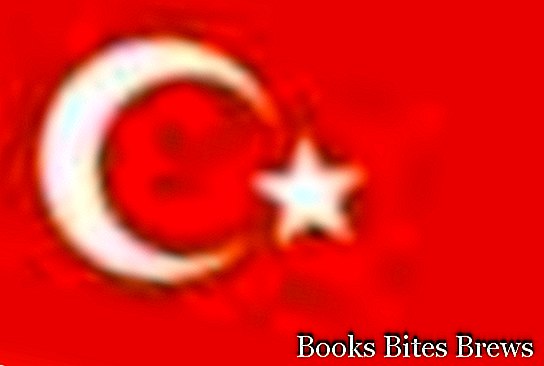Useful information on Turkey, including all the things to know before leaving for a trip or a holiday in this Eurasian state.
Turkey in a nutshell
- Capital: Ankara
- Area in sq km: 779,452
- Population: 74,876,697 (2006)
- Religion: Muslim Sunni majority
Where is it
Bordered to the north east with Georgia, to the east with Armenia and Iran, to the south with Iraq and Syria, to the north west with Greece and Bulgaria, Turkey is washed by the Aegean Sea, the Black Sea and the Mediterranean Sea, it also includes among the its shores, European and Asian, the Sea of Marmara, bordered by the Bosphorus and Dardanelles straits.
Eastern Thrace (European Turkey) represents only 3% of the country's territory, the remaining territory (Asian Turkey) consists of a massive peninsula coinciding with Anatolia and largely occupied by a vast plateau, crossed by numerous chains and delimited to the north by the Pontic Mountains and to the south by the Taurus Mountains, located behind the coast of the Mediterranean Sea and connected, proceeding eastwards, to the Armenian Acrocoro.
On the border between Armenia and Iran lies Mount Ararat, the highest peak in Turkey.
Hydrography
The main waterways of Turkey are the Kizilirmak (the longest river), the Yesilirmak and the Sakarya, which flow into the Black Sea, the Gediz and the Buyuk Menderes which pay to the Aegean Sea, the Tigris and the Euphrates, which are headed for the Persian Gulf.
Anatolia is rich in lake basins, the largest being Van and Tuz, with salty waters, and Beysehir.
Climate
Turkey, a land stretched between three seas with coastal reliefs and high inland regions, is characterized by different climatic situations.
The Black Sea region has a mild and humid climate, its coast being the rainiest area in the country.
The regions of the coast of the Mediterranean Sea and the Aegean Sea are characterized by a typically Mediterranean climate, with mild winters and hot summers, the rains are moderate, with consequent drought in the summer.
The internal plateau has an arid climate, with hot and dry summers but harsh winters.
In mountainous areas the climate is alpine.
Recommended readings- Ankara (Turkey): what to see in the capital
- Bodrum (Turkey): what to see in the coastal city
- Turkey: useful information
- Ararat: ascent to the mountain where Noah's Ark landed
- Istanbul (Turkey): what to see in ancient Constantinople
Population
The majority of the population is made up of Turks who, originally from Central Asia, arrived in Turkey in the eleventh century, and minorities of Kurds, as well as Arabs, Greeks and Armenians.
Time zone
In Turkey it is necessary to move the clock hands one hour ahead of Italy (throughout the year).
Spoken language
The official language of Turkey is Turkish which belongs to the Ural-Altaic group.
The Turkish language has undergone several transformations over the centuries, up to the reform desired by Kemal Ataturk (in 1928), when the new Turkish alphabet derived from the Latin one replaced the Arabic spelling in writing and many Arabic and Persian words were removed leaving the place for new words.
It took many years to arrive at the current modern Turkish language and even today young and old people often use different terms to express themselves.
Economy
Turkey with its geographical position on the border between the West and the East and its rich history, is called upon to face numerous challenges to conquer a balanced economic development, which is also necessary to obtain admission to the European Union.
The economy initially based on agriculture, around 1930 underwent a transformation that allowed the start and development of industrial activities such as textiles and food.
In addition, heavy, petrochemical, steel and metalworking industries (sectors controlled by the state that would need funding to expand and modernize infrastructure) have developed.
The tourism sector, the construction of machine tools, the transformation sector, the car assembly sector are gradually increasing.
The country is rich in mineral resources such as copper, coal, lignite, bauxite, boron and chromium which must be properly exploited.
Most of the active population is engaged in agriculture, there are crops of wheat, potatoes, legumes, fruit, sunflower seeds, olives, fruit, sugar beets, tobacco, cotton and the breeding of cattle, sheep is also practiced , goats and rams, necessary to obtain the wool used for the manufacture of the rugs which feeds an important artisan tradition.
When to go
In choosing the best times to go, it must be considered that on the Black Sea coast the climate is mild and rainy throughout the year, while on the coast of the Mediterranean Sea and the Aegean Sea the bathing season is concentrated between April and October.
To visit the central regions, the spring months, March and April, and the typically summer months, July and August are preferable.
For the eastern part of the country, the periods between mid-May to the end of September are better.
Necessary documents
To enter Turkey, Italian citizens must have an identity card valid for expatriation.
The passport is for those who go to Turkey for reasons other than tourism and for those traveling with their own vehicles, which must be noted on the passport when entering the country, with subsequent verification at the time of exit.
Phone
- To call from Italy to Turkey the international prefix is: 0090
- To call from Turkey to Italy the international prefix is: 0039
The GSM network covers almost the whole territory.
Electricity
The electric current in Turkey is 220 V 50 Hz. Electrical outlets type C and type F.
Currency
The official currency of Turkey is the New Turkish lira (TRY).
Credit cards are accepted especially in tourist locations and major cities.
Euros are accepted, but it is advisable to pay in Turkish lira because the exchange that is practiced is not convenient.
How to get
plane
Turkish Airlines, Alitalia, Blue-express, Pegasus operate direct flights between Italy and Turkey.
Ship
The Turkish Maritime Lines shipping company offers various connection options between Italy and Turkey. The Marmara Lines company connects Ancona to Cesme.
Car
The route by private car without using the ferry passes through Slovenia, Croatia, Bosnia, Serbia, Bulgaria (from Rome it is about 2200 km).
Vaccinations
No vaccinations are required to enter Turkey, however vaccinations against typhoid, hepatitis A and B are recommended.
In the summer, especially in the Anatolian southeast (water is not drinkable), attention should be paid to the purchase of drinks and food.
The purchase of minced meat, different types of appetizers and mixed salads already packaged is not recommended.
Before embarking on the journey, it is advisable to take out health insurance.




